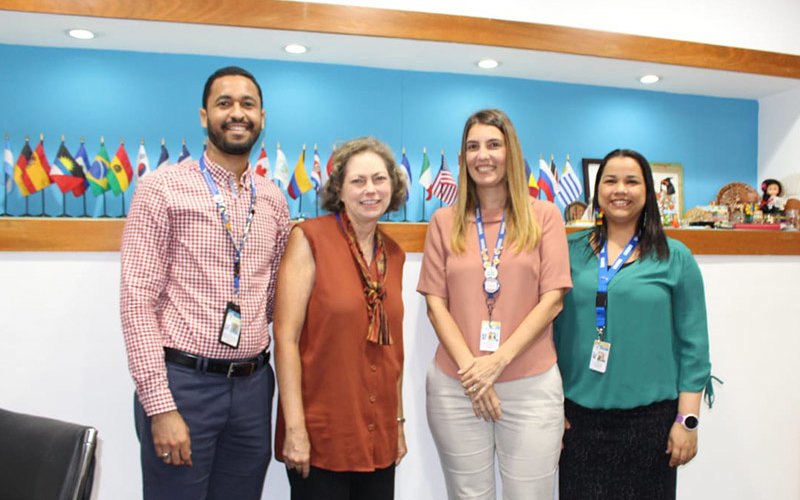
Long before COVID-19 compelled faculty and students across the world to pursue distance learning, Denise Stanley was designing, teaching and researching online courses.
Selected as a Fulbright U.S. Scholar to the Dominican Republic for the 2019-20 academic year, the professor of economics intended to expand collective knowledge on distance learning by integrating an international perspective. Her Fulbright is a FLEX award, where research is conducted in multiple, short-term stays in the host country over one year.
Stanley’s study was looking at content created and delivered by faculty at Universidad Iberoamericana (UNIBE), comparing student outcomes from in-person courses to those from hybrid classes — courses with online components as well as on-campus meetings. She hypothesized that perceived and actual learning outcomes, student engagement and student satisfaction would remain the same across the two course delivery methods.
After completing two of three trips to the Caribbean nation to set up surveys that would provide data for her research, however, the new coronavirus has shut down the country, UNIBE has closed and its coursework has moved online.
“I have tried to reach out to the university, but it has been difficult since the Dominican Republic’s state of emergency goes way beyond our ‘shelter-in-place,'” Stanley explains. “The country, as well as other countries in the region, has night curfews and the airports are closed.”
The irony of not being able to research online learning because schools are being forced to deploy online learning is not lost on Stanley. She has resigned herself to the fact that survey data collected this semester would be useless, and the third trip she had scheduled as part of the Fulbright award is on hold.
On the bright side, before hopping on a plane back to the U.S. in late February, she and her partners at UNIBE successfully completed and submitted for publication a systematic review of Spanish-language literature on the subject.
She’s also thinking creatively about how she might use some of the work she has put into the Fulbright project. For example, looking at the relationship between students’ level of online engagement online and their grades and exam scores could be a way to see if more online activity leads to better grades.
Stanley regularly offers managerial economics online and has taught “Principles of Microeconomics” at CSUF as a hybrid class since 2015. The latter has served as a “proven practice” for the CSU’s Course Redesign with Technology Initiative, which was developed to address enrollment bottlenecks that limit students’ ability to progress toward graduation.